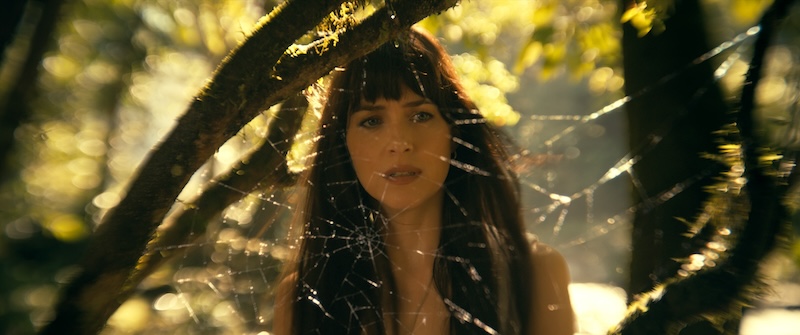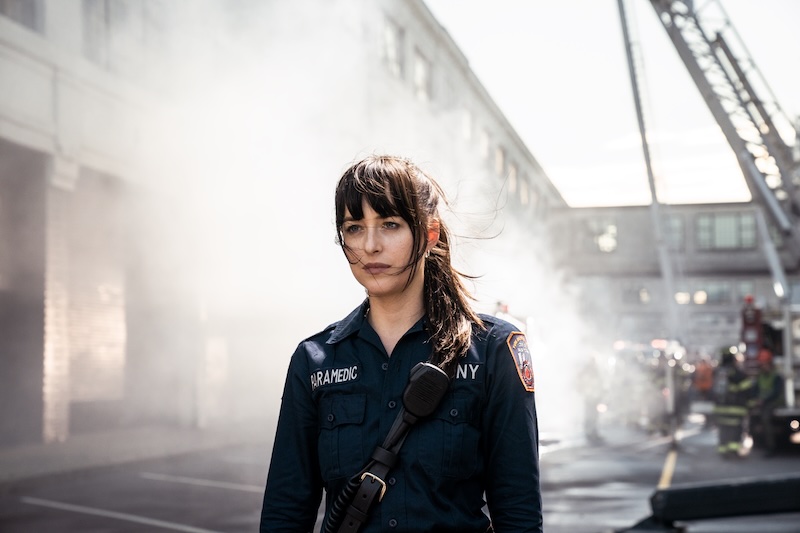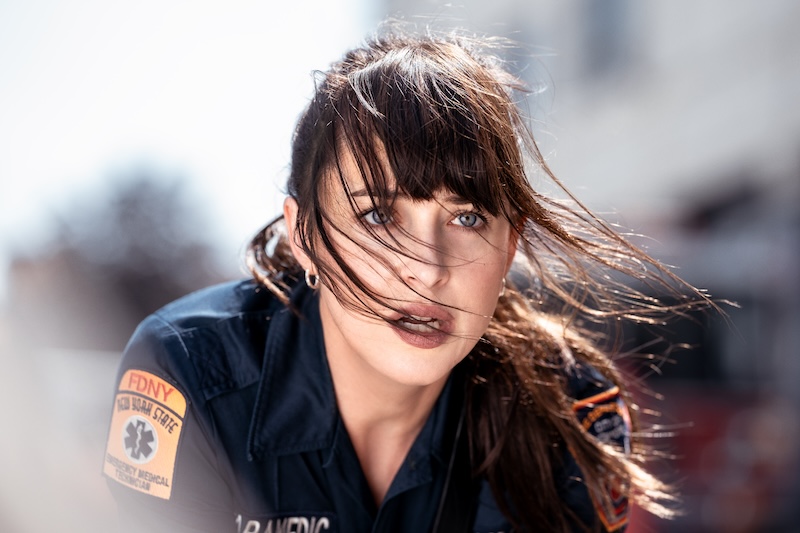Tangled in a web of fate: in conversation with the stars of Madame Web
Director SJ talks about her love for the noughties, and the man behind the movie’s villain, Tahar Rahim goes deep on the subject of deja vu…
Sony emerged from their latest rummage in the Marvel comic book vault with a fresh-faced team of female protagonists, headed up by Cassie Webb AKA Madame Web (played by Dakota Johnson).
The film, also titled Madame Web, is out in cinemas across the Middle East now and treads along some hitherto unexplored strands of the Spidey-Verse web. It’s a stand-alone origin story for a new cluster of arachnid-themed superheroes, captained by Cassie – who has some pretty abstract, although practically useful powers (which incrementally announce themselves throughout the movie). Powers that include precognition, the ability to see things before they happen – setting up an intellectually positioned wrestle with the concept of fate.
It’s all set in the early 2000s which means that the soundtrack comes with a lot of, to borrow parlance of the times, crunk in its trunk. Beyond the bangers, the movie’s timeline positioning feels like a strategic way of yanking on a few heartstrings (we’re introduced to an ‘Uncle’ Ben Parker and we can’t go any further, because, spoilers) as well as enabling potential future integrations into other Sidey-Verse sagas (it’s worth noting that Madam Web’s abilities include some muddy traversing of both time and space). Madame Web also has a bad guy with his own set of juiced-up superpowers – but with narrowly, if not relatable – at least, comprehensibly human drives behind his villainy.
What’s On was lucky enough to speak to the film’s director, S.J. Clarkson (who has directed episodes of Marvel’s Jessica Jones and The Defenders, as well as episodes of Succession, Orange is the New Black, Dexter, House, Toast, Heroes, Life on Mars, and cult British “get out of my pub” soap, Eastenders) and the man behind Ezekiel Sims, the movie’s chief villain – Tahar Rahim.

Cassandra Webb (Dakota Johnson) in Columbia Pictures’ MADAME WEB.
Tahar Rahim
WO: Madame Webb confuses the onset of her powers for a case of deja vu. Bit of a spiritual question for you now. But what do you think deja vu is? Do you think it’s an actual thing? Is it a spiritual thing? Or is it just a material scientific, biochemical misfiring in the brain?
TH: The deja vu feeling is it’s just your brain tricking you. It’s science. It’s like your eyes are seeing it, and you feel like you’ve seen it twice because you’re tired or whatever. But if you’re talking about dreams. I don’t know. Sometimes maybe what you see will happen. I believe that. And we can also talk about sensing your fate. When you know something deeply. You know what’s going to happen. You don’t know how. You don’t know when. But you feel like it’s gonna happen. And when it happens, you think, yeah, there might be a connection somewhere. And I believe in fate. Deeply.
WO: The drive behind your character’s actions feels a little bit more rooted in real human frailties than the standard comic book villain. How did that inform how you played the part?
TH: I studied everything I could about Ezekiel, and the fact that it’s a new story and an origin story for Cassie, it’s the same thing for Ezekiel. So in the whole story, what fit better, was to create our own ice cube. And a lot of elements that are connected, I mean, the story, Cassie Webb, the training, this, the psychological studies, and, and the fact that it’s really grounded in reality, helps a lot because you can bring some of yourself in terms of, you know, body language, for example.
If you could switch sides and put on the mask of one of the good guys, what superhero would you like to play?
What are the good guys? I think I like the Ironman. Because I think he’s funny, clever, very human. And he doesn’t have a superpower. He created everything. So I feel more connected to him than the others.
How much of a deep dive did you do into the comics featuring your character?
I read every comic book where Ezekiel appears, I like to do my homework. I need to know everything. So I can use it, whenever I want in a specific script, because the script cannot be told as a comic book. Right? So you gotta take whatever you can from the comic book to fit in, in a movie, which I did. I think. I tried.

S.J. Clarkson
WO: With the film set in the early noughties, we get to see some great nuggets of of nostalgia. But what can you tell us about the strategy of that timeline?
SJC: That was the script that was delivered to me, with that timeline in it. And I just thought, Well, I remember the note is they’re talking about as being vintage right now. And I was like, that makes me vintage. Because I remember the 1990s. They were good. So there was a healthy level of nostalgia for me. And I think what makes it really helpful for this film, and the storytelling is we weren’t bound by smartphones and technology, the only person that gets technology is the villain. Which kind of that liberates you from having to rely on those tropes in movies. And I think it helped make a more organic story of connection because in many ways, technology takes over connections. Look at us now [ed: we’re talking via Zoom], it’s incredible that we’re speaking to each other this way, technology is brilliant. But equally, how do you connect on a human face-to-face level and strangers come together? And what becomes of that? And I found that exciting about going back to that time period and being able to explore that.
Which elements of the Madame Web lore did you feel it was most important to get across on screen?
I think is her abilities and how she used the psychic powers and how they developed, because obviously, when we find her in the comic, she’s a fully-fledged character, right? So it was like, well, if she can do this and see this, if that’s the end, what’s the journey to get there? In one of my favourite scenes, she talks to the villain and – without giving spoilers away – where we’re able to play with that, like ‘mind meld’, the ability to sort of teleport in one’s mind. So all of those things in the way she worked within them, I thought were really exciting, and gave a great opportunity to make it cinematically exciting, seeing psychic powers in cinematic form.

Cassandra Webb/Madame Web (Dakota Johnson) in Columbia Pictures’ MADAME WEB.
This is not your first Marvel directing rodeo, what attracts you to telling stories in these sorts of superhero spaces?
Jessica Jones was my first introduction to it, I found her such a compelling character, a female loner, a little bit rough around the edges, you know, didn’t quite fit into the world. And I think Madam Webb has that too. I felt, the psychology of her and the skill set that she has, I found really intriguing. So I think I’ve been quite lucky that, that was my first introduction, but I also loved The Defenders. I introduced the character of Luke Cage, he is such a fantastic character. And it was brilliant to work with Charlie as Daredevil and get the four of them together, and I saw how very different worlds might collide. And I honestly, I loved it. When I first read Alias, I thought this is incredible. I hadn’t really realised how clever and beautiful and brilliant you know, that genre could be. I was blown away. And then that was how I got sucked in. And here I am. Very lucky.
Madame Web is in cinemas across the GCC now. Book tickets: here
Images: Provided
